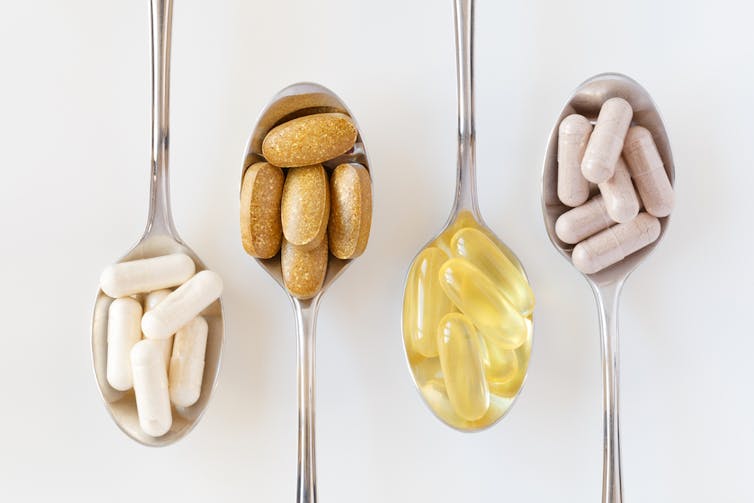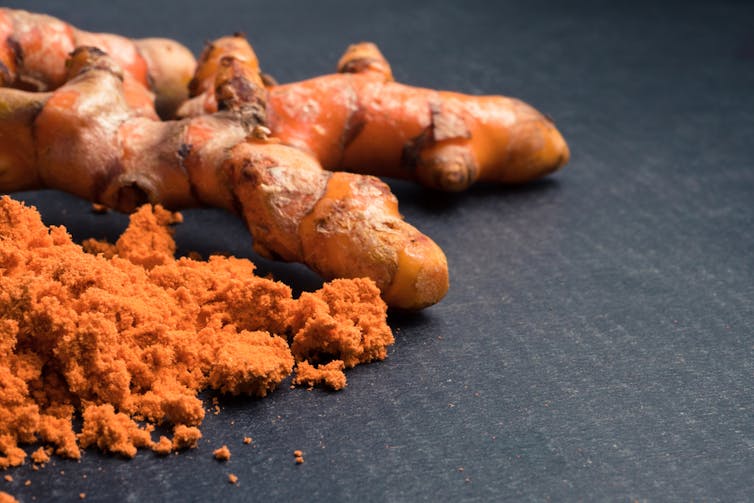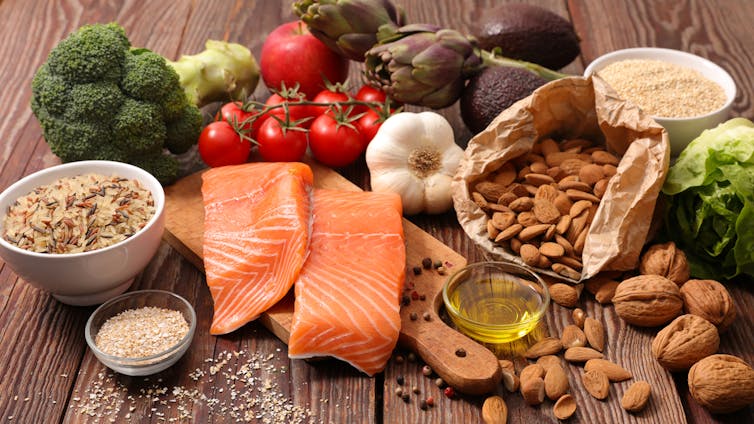What supplements do scientists use, and why? – CWEB.com

Simon Bishop, Bangor University; Graeme Close, Liverpool John Moores University; Haleh Moravej, Manchester Metropolitan University; Justin Roberts, Anglia Ruskin University; Neil Williams, Nottingham Trent University, and Tim Spector, King’s College London
Supplements are a multi-billion dollar industry. But, unlike pharmaceutical companies, manufacturers of these products don’t have to prove that their products are effective, only that they are safe — and that’s for new supplements only.
We wanted to know which supplements are worth our attention (and money) so we asked six scientists — experts in everything from public health to exercise physiology — to name a supplement they take each day and why they take it. Here is what they said.
Turmeric
Simon Bishop, lecturer in public health and primary care, Bangor University
Turmeric is more familiar as an ingredient in South Asian cooking, adding an earthy warmth and fragrance to curried dishes, but, in recent years, it has also garnered attention for its potential health benefits. I have been taking ground turmeric root as a dietary supplement for around two years, but I have been interested in its use in Ayurvedic medicine for far longer.
[youtube https://www.youtube.com/watch?v=9TXBP1t2rUc&w=560&h=315]
Turmeric is used as a traditional remedy in many parts of Asia to reduce inflammation and help wounds heal. Now, mounting evidence suggests that curcumin, a substance in turmeric, may also help to protect against a range of diseases, including rheumatoid arthritis, cardiovascular disease, dementia and some cancers.
The evidence underpinning these claims of health-giving properties is not conclusive, but it is compelling enough for me to continue to take turmeric each morning, along with my first cup of coffee — another habit that may help me live a bit longer.

Trum Ronnarong/Shutterstock.com
Vitamin D
Graeme Close, professor of human physiology, Liverpool John Moores University
Vitamin D is a peculiar vitamin in that it is synthesised in our bodies with the aid of sunlight, so people who live in cold countries, or who spend a lot of time indoors, are at risk of a deficiency. People with darker skin tone are also more at risk of vitamin D deficiency as melanin slows down skin production of vitamin D. It is estimated that about a billion people are deficient in the vitamin.
Most people are aware that we need enough vitamin D to maintain healthy bones, but, over the past few years, scientists have become increasingly aware of other important roles of vitamin D. We now believe vitamin D deficiencies can result in a less efficient immune system, impaired muscle function and regeneration, and even depression.
Vitamin D is one of the cheapest supplements and is a really simple deficiency to correct. I used to test myself for deficiencies, but now — because I live in the UK where sunlight is scarce between October and April, and it doesn’t contain enough UVB radiation during these cold months — I supplement with a dose of 50 micrograms, daily, throughout the winter. I also advise the elite athletes that I provide nutrition support to, to do the same.
Probiotic
Justin Roberts, senior lecturer in sport and exercise nutrition, Anglia Ruskin University
Having diverse beneficial gut bacteria is important for your physical and mental health. However, the balance of bacterial species can be disrupted by poor diet, being physically inactive and being under constant stress. One way to support the health of the gut is to consume dietary probiotics (live bacteria and yeasts), such as yogurt, kefir and kombucha.
I first came across probiotics after years of triathlon training, often experiencing gastrointestinal symptoms — such as nausea and stomach cramps — after training and races. I was also more susceptible to colds. After researching the area, I was surprised at how many people experience similar gastrointestinal problems after exercise. Now I have found that taking a probiotic regularly lessens my symptoms after training and benefits my general health.
A recent study we conducted showed that taking a probiotic in the evening with food, over 12 weeks of exercise training, reduced gastrointestinal problems in novice triathletes.
There is also a wealth of research supporting the use of probiotics for general health benefits, including improving intestinal health, enhancing the immune response and reducing serum cholesterol.
Prebiotic
Neil Williams, lecturer in exercise physiology and nutrition, Nottingham Trent University
Prebiotics are non-digestible carbohydrates that act as a “fertiliser” to increase the growth and activity of beneficial bacteria in the gut. This is turn can have positive effects on inflammation and immune function, metabolic syndrome, increase mineral absorption, reduce traveller’s diarrhoea and improve gut health.
I first came across prebiotics in my research to target the gut microbiota in athletes suffering from exercise-induced asthma. Previous research had shown asthma patients to have altered gut microbiota, and feeding prebiotics to mice had been shown to improve their allergic asthma. Taking this as our launching point, we showed that taking prebiotics for three weeks could reduce the severity of exercise-induced asthma in adults by 40%. Participants in our study also noted improvements in eczema and allergic symptoms.
I add prebiotic powder to my coffee every morning. I have found that it reduces my hayfever symptoms in the summer and my likelihood of getting colds in the winter.
Omega 3
Haleh Moravej, senior lecturer in nutritional sciences, Manchester Metropolitan University
I started taking omega 3 after attending a Nutrition Society winter conference in 2016. The scientific evidence that omega 3 could improve my brain function, prevent mood disorders and help to prevent Alzheimer’s disease was overwhelming. After analysing my diet it was obvious that I wasn’t getting enough omega 3 fatty acids. A healthy adult should get a minimum of 250-500mg, daily.
Omega 3 is a form of fatty acid. It comes in many forms, two of which are very important for brain development and mental health: EPA and DHA. These types are primarily found in fish. Another type of omega 3 — ALA (alpha-linolenic acid) — is found in plant-based foods, such as nuts and seeds, including walnuts and flax seeds. Due to my busy schedule as a lecturer, during term time my diet is not as varied and enriched with omega 3 fatty acids as I would like, forcing me to choose a supplement. I take one 1,200mg capsule, daily.
Nothing but real food
Tim Spector, professor of genetic epidemiology, King’s College London
I used to take supplements, but six years ago I changed my mind. After researching my book I realised that the clinical studies, when properly carried out and independent of the manufacturers, clearly showed they didn’t work, and in many cases could be harmful. Studies of multivitamins show regular users are more likely to die of cancer or heart disease, for example. The only exception is supplements for preventing blindness due to macular degeneration, where randomised trials have been generally positive for a minor effect with a mixture of antioxidants.

margouillat photo/Shutterstock.com
![]() In many cases, there is some experimental evidence these chemicals in supplements work naturally in the body or as foods, but no good evidence that when given in concentrated form as tablets they have any benefit. Recent evidence shows that high doses of some supplements can even be harmful — a case in point being calcium and vitamin D. Rather than taking expensive and ineffective synthetic products, we should get all the nutrients, microbes and vitamins we need from eating a range of real foods, as evolution and nature intended.
In many cases, there is some experimental evidence these chemicals in supplements work naturally in the body or as foods, but no good evidence that when given in concentrated form as tablets they have any benefit. Recent evidence shows that high doses of some supplements can even be harmful — a case in point being calcium and vitamin D. Rather than taking expensive and ineffective synthetic products, we should get all the nutrients, microbes and vitamins we need from eating a range of real foods, as evolution and nature intended.
Simon Bishop, Lecturer in Public Health and Primary Care, Bangor University; Graeme Close, Professor of Human Physiology, Liverpool John Moores University; Haleh Moravej, Senior Lecturer in Nutritional Sciences, Manchester Metropolitan University; Justin Roberts, Senior Lecturer, Anglia Ruskin University; Neil Williams, Lecturer in Exercise Physiology and Nutrition, Nottingham Trent University, and Tim Spector, Professor of Genetic Epidemiology, King’s College London
This article was originally published on The Conversation.


